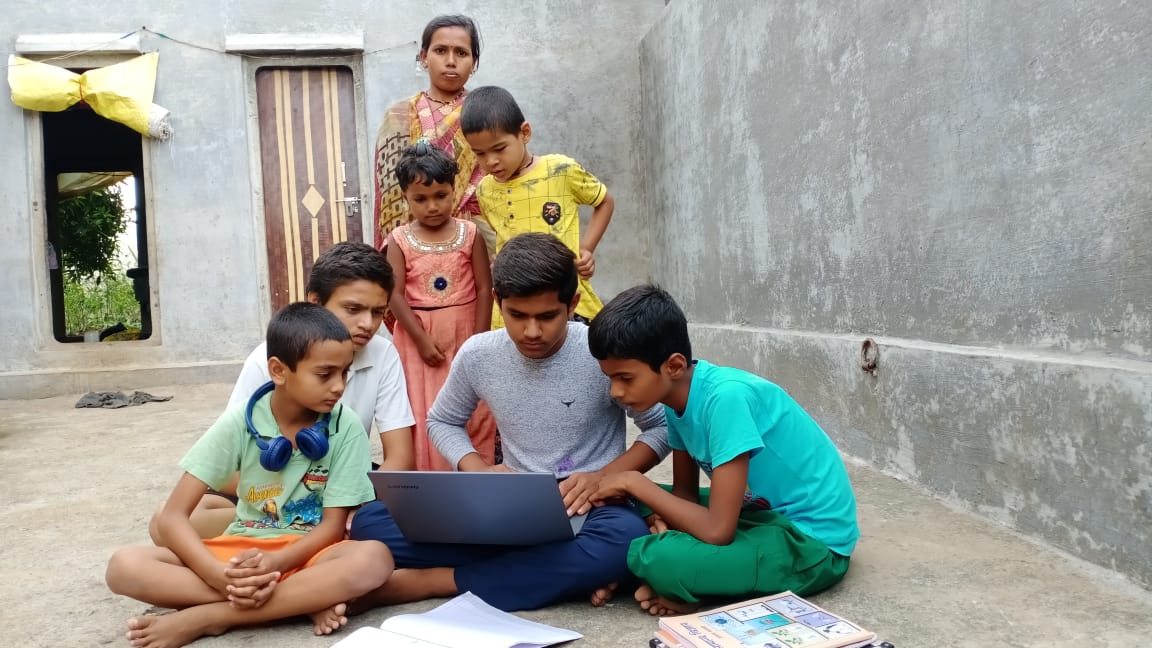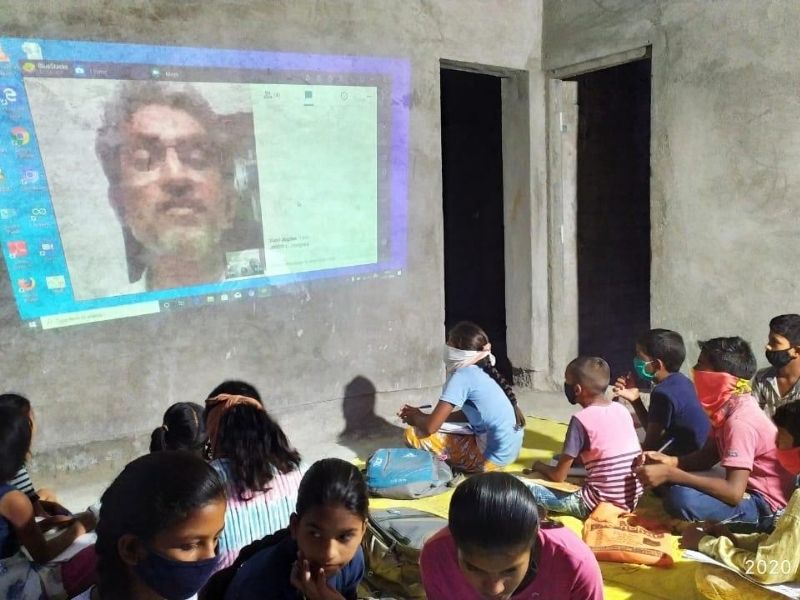Akhila Damodaran
Children of farmers and daily wage earners in Maharashtra are learning Japanese at their Zilla Parishad (ZP) run schools. Many students in remote villages of Aurangabad district have also enrolled for the Japanese-Language Proficiency Test (JLPT) that will be conducted in December by Japan Foundation and Japan Educational Exchanges and Services.
Dadasaheb Navpute, a secondary English teacher at the Gadiwat school where about 140 students are learning the foreign language says, “We proposed to teach a foreign language to our students in September last year and gave them the choice to learn French, German and Japanese. They chose Japanese as they are interested in robotics and technology. They think it would be better to learn the language for better communication with companies in Japan in case they are collaborating on some projects. Students started learning it from apps and YouTube. They would also use Google translator to translate Marathi to Japanese but they found it to be inaccurate and insufficient. Language expert Sunil Jogdeo got to know about our initiative and offered to provide free online classes to the students.”

Students of Zero Energy Waste Wable Wadi school learning Japanese
The Japanese language programme by Jogdeo was initially introduced at Wable Wadi school, a government school which follows international curriculum. “I conduct two-hour classes online on Google Meet. Children enjoy learning the language. Even if they speak wrong, they have fun. Some parents who are curious to know more also join the classes. I teach about 22 students from class 4 to 10 of the Wable Wadi school from 7 to 9 am every day. I teach Gadiwat school students in the evening, from 7 to 8.30 pm. Wable Wadi school has a great curriculum design with focus on skill building. The six-month language course has been cut down to three months. They are also setting up language labs for promotion of Indian and foreign languages,” says Jogdeo. He adds that students are picking up very well and are now also learning to write Japanese. The course usually commences with a pronunciation practice followed by sentence construction, learning numbers and speaking short sentences. Students learn how to conduct a daily conversation in Japanese and translate sentences from Marathi to Japanese. Notes and practice lessons are also shared on WhatsApp.
Read: Good future in learning Japanese
Since all students do not have smartphones to access the online classes, the Wable Wadi school works with ‘vishay mitra’ (subject friend), a concept they introduced eight years ago. Children who learn from Jogdeo in turn teach other students. They have various WhatsApp and physical groups to inspire and mentor each other. Jogdeo says, “Learning a new language builds a confident personality and improves career opportunities and skills. It will help students when they look for opportunities to collaborate with Japanese companies for projects related to robotics and technology. There is scope for translation and interpretation jobs too. These students can also provide coaching after they are certified by JLPT.”
Dattatray Ware, principal of Wable Wadi school says, “Children are dedicated and eager to learn as Jogdeo teaches in an interesting manner. They have improved their speaking and writing skills. Many teachers and government officials are in talks to take the programme to other schools. About 140 students of our schools have enrolled for JLPT exam for professional certification. We have filled in their forms online for the exam in December.”
Read: Language professionals: Good future in learning Japanese
Posted in News, States























